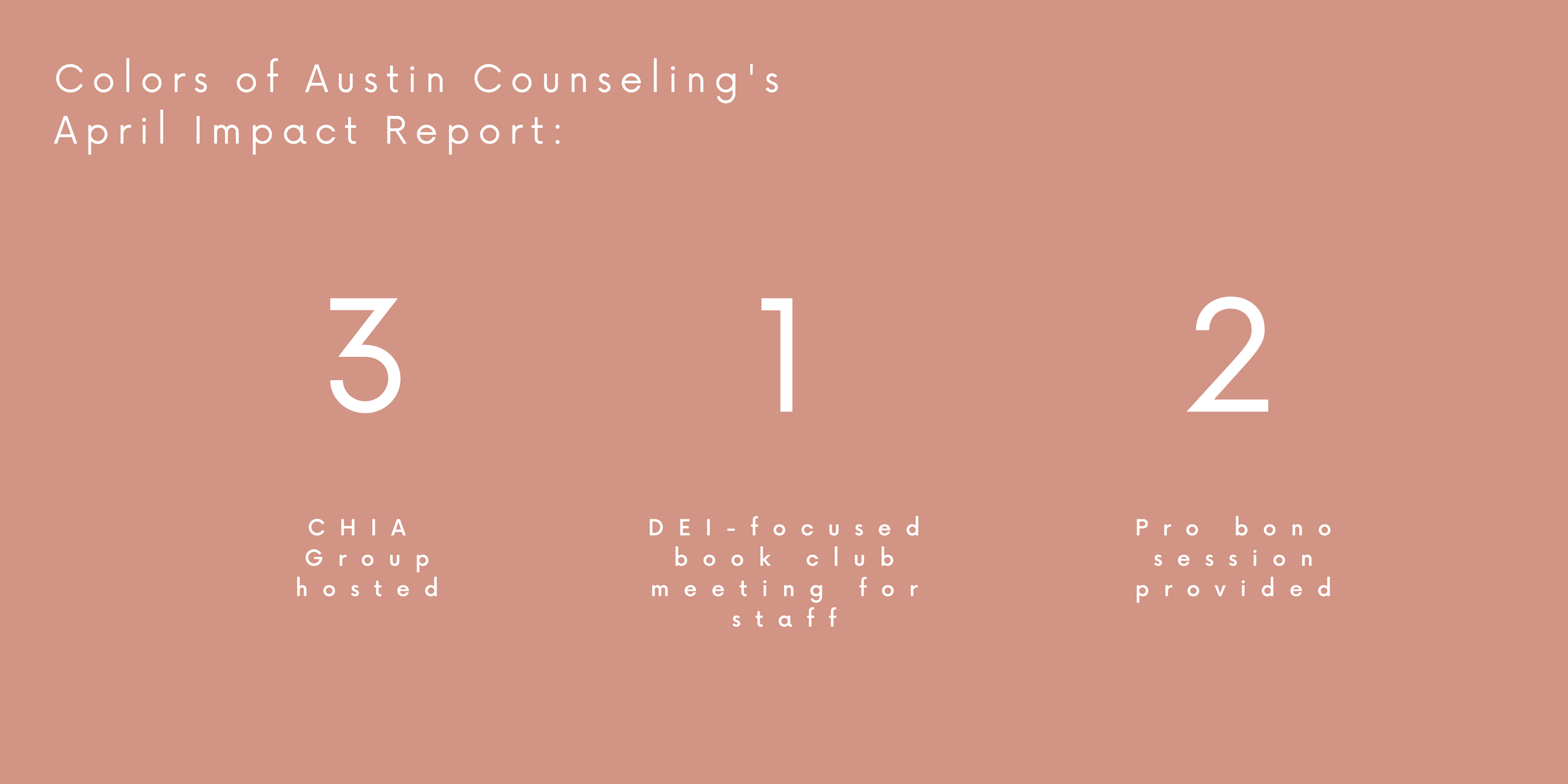It Takes A Village...How You Can Support Ours
Written by Sandra Olarte-Hayes LCSW, Interim Executive Director
A client calls seeking services and is connected to our practice’s Client Care Coordinator. In the past, the matching process has been relatively quick and easy. Our practice typically has a number of therapists with various specialities who have openings, including those who take insurance and those who don’t. The Client Care Coordinator asks a few questions to determine the best match and the first session is scheduled promptly.
In the last 6 months, however, we’ve noticed that this process has become significantly more difficult. Now, if a client would like to use their insurance benefits, our Client Care Coordinator must inform them that all of our therapists who take insurance are full and have been for some time. I, for example, haven’t taken on a new client in a year and a half. Why? Because mental health needs are incredibly high right now and when clients find a good therapist who takes their insurance, they hold on to them.
Our Client Care Coordinator must then explain the client’s options. Clients can be referred out or matched with one of our private pay therapists and either pay out of pocket or use their out-of-network benefits. While private pay and out-of-network benefits have always been used at our practice, we are finding that a much higher proportion of the clients who call us lately say that private pay fees are completely out of reach for them and that though they desperately need services, they must use their insurance benefits. Some share that even when using their benefits, their copays and deductibles are still unaffordable and they were hoping we would have funding to subsidize their services because of our practice’s mission and values. Clients are also increasingly communicating that our sliding scale rates are also not attainable for them.
Conversations with other therapists in the community have illuminated how we got here. The last few years have been difficult for mental health professionals as we support the world’s mental health through repeating crises. I’ve seen many excellent and dedicated therapists completely leave the field as a result of the burnout. Others who once accepted insurance have decided to end their contracts with insurers in order to be able to work fewer hours due to the heightened emotional toll. Because of this, I keep hearing about a shortage of therapists who take insurance all over Austin, though insurance is one of the main ways therapists can provide services across the socioeconomic spectrum.
Mental health advocates sometimes argue that in times like these, private practice therapists should lower their rates. I was once a person who made this argument. But after being on the other side of the equation and seeing the emotional toll this moment in history is taking on therapists, I no longer do.
Our rates are connected to our mission. As a practice staffed completely of therapists who hold marginalized identities, our therapists carry the lived experiences of the populations they specialize in serving. Our identities and experience hold so much benefit for our clients and are a huge part of why they feel seen by us. But being underrepresented in the mental health field means that our therapists are in high demand and are less likely to come to this work with wealth and privilege. An important part of our mission is to increase access for clients with marginalized identities to therapists from their communities and we work to cultivate diversity in our field by creating a workplace where therapists can do their best work, make a living wage, and care for their emotional needs. We want them to be well and to stick around and to do so, their work must be sustainable, balanced, and fairly compensated. We also support our team’s wellness through restorative offerings, consultation, and a leadership team that supports our team in a multitude of ways. We believe in this strongly.
And so it is with our mission and these financial access trends in mind that we turn to our community for support. As of today, we are beginning to accept donations from our community to fund our equity-focused work. These funds will be used to subsidize high-quality therapeutic services for clients with marginalized identities (BIPOC and LGBTQIA+ clients) who need financial support to be able to work with a therapist who meets their cultural needs. Donations will also go towards funding our equity-focused work that serves to increase diversity in our field and shift the field of mental health towards decolonized practice, including our support offerings for therapists with marginalized identities and our Collective Healing In Action affinity groups.
We deeply believe in increasing access to care for our communities without sacrificing therapist well-being and know these types of collective care offerings require community support to sustain. If you are able to support us in this work, please click here to make a donation. We are deeply grateful for your support and generosity.



